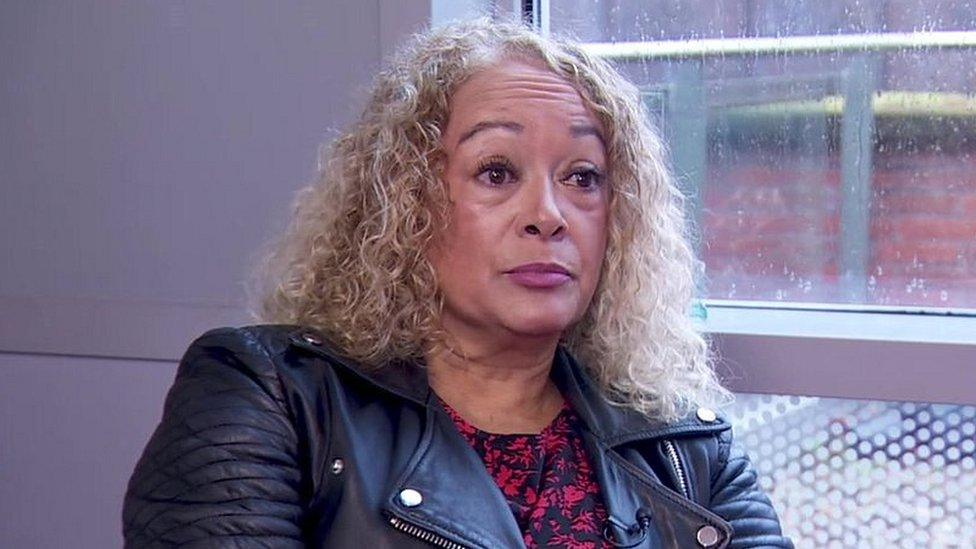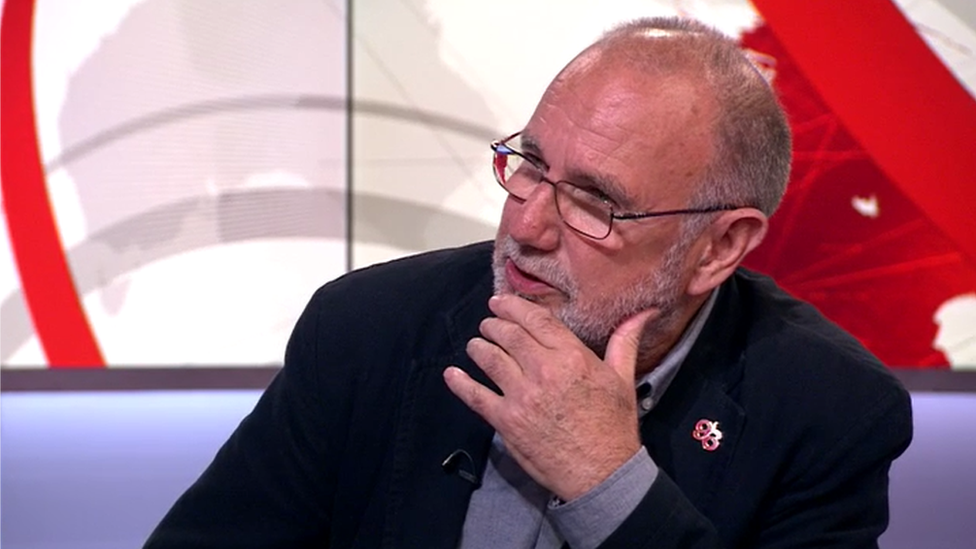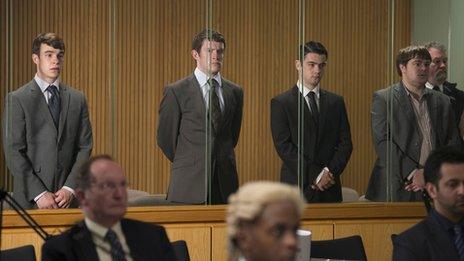Kim Johnson: MP inspired by TV show to launch bid to reform law
- Published

Kim Johnson MP said she fears minority groups are disproportionately convicted under the law
An MP has told how she was inspired to present a bill to reform the law on joint enterprise by a TV drama.
Liverpool Riverside's Kim Johnson said she was moved by Jimmy McGovern's BBC drama Common, about a teenager who falls foul of the law.
The Labour MP presented the Joint Enterprise (Significant Contribution) Bill to the Commons on Wednesday.
Joint enterprise allows a murder conviction without inflicting a fatal blow.
It means people with an indirect link to a crime can be charged in connection with the offence.
Ms Johnson said: "I became aware of joint enterprise after watching Jimmy McGovern's shocking and powerful drama Common in 2014."
It tells the story of 17-year-old Johnjo, who gives his cousin and his friends a lift and finds himself implicated in a stabbing.
Ms Johnson said: "Since being elected in 2019, I've met with JENGbA a grass root campaign set up in 2010, who are in contact with over 1,000 families of people imprisoned as a result of joint enterprise laws.
"[It showed] a disproportionate number of young black teens, who have been wrongly convicted under a method of joint enterprise that was used to convict people who foresaw a crime but did not intend to join in.
"The more I speak with families and learn about joint enterprise the more outraged I become."

Jimmy McGovern's 2014 drama tells the story of a teenager who is an alleged victim of the joint enterprise law
The Supreme Court ruled seven years ago that the law, which allows people to be convicted of murder even if they did not inflict the fatal blow, has been wrongly interpreted for more than 30 years.
Five judges upheld the appeal by Ameen Jogee, who was convicted under joint enterprise of the murdering ex-Leicestershire police officer Paul Fyfe in 2011 because he had "egged on" his friend Mohammed Hirsi, who stabbed Mr Fyfe in the heart.
Jogee had argued he was not at the murder scene when the incident took place and could not have foreseen what his friend intended to do.
The law has been used to convict people in gang-related cases if defendants "could" have foreseen violent acts by their associates.
However, judges ruled it was wrong to treat "foresight" as a sufficient test.
'Minority groups'
A spokeswoman for the MP said the 2016 case was the only joint enterprise case where a conviction has been overturned on appeal. It was hoped this would become a legal precedent but that has not happened.
She added: "The CPS effectively said it is up to Parliament to change the law."
She said campaigners have argued it can be used in a racist way against certain minority groups.
Her private members bill would amend the Accessories and Abettors Act 1861 "to provide that criminal liability only applies to a person who directly commits, or who makes a significant contribution to, a crime".
However, her bill would need the government to allocate more parliamentary time for it to reach the statute book.
A statement from the Ministry of Justice said: "The government recognises the importance of the law on joint enterprise and the consequences it has for defendants and their families, as well as on victims and their loved ones.
"We have no current plans to amend the law in this area but will consider carefully the text of Kim Johnson's bill when published."

Why not follow BBC North West on Facebook, external, X, external and Instagram, external? You can also send story ideas to northwest.newsonline@bbc.co.uk
Related topics
- Published18 February 2016

- Published6 July 2014
